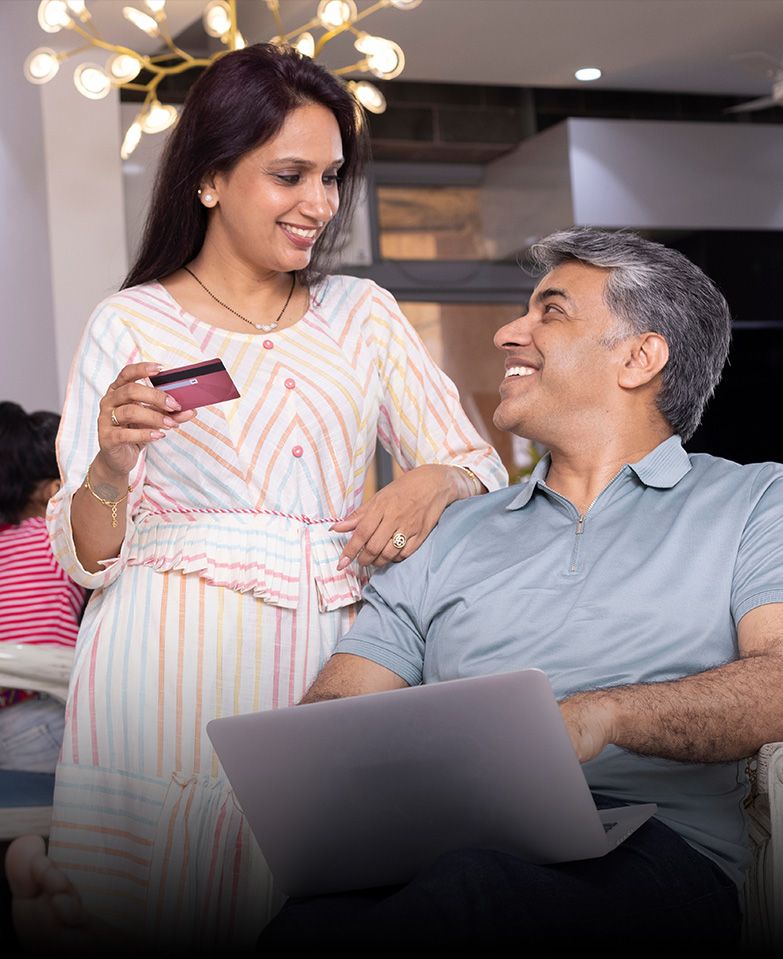
How to Get Credit Card for Self Employed Individuals?
Key Takeaways
|
Credit Cards for Self Employed
Being your own boss, the self-employed lifestyle has a unique charm - but it comes with its fair share of financial challenges. You're your own boss, setting your own hours, doing what you love, and of course, managing your finances. After all, what is self employed without wearing multiple hats? In this game of financial juggling, a credit card isn't just a shiny plastic card, it's a lifeline. A good credit card can be your trusty friend in your quest for financial efficiency. So, let's look into why you, an entrepreneur, could use a self employed credit card and how you can get one.
Benefits of Credit Cards for Self Employed
Running your own show, you're often juggling many roles. One minute you're the boss, the next, you're the accountant. That's where a credit card can make a world of difference. Here's how:
- Expense Tracking: Using a credit card for all business expenses helps keep them in one place, making it easier to track and manage your money. No more sifting through heaps of bills and receipts!
- Cash Flow Management: With a credit card, you get an interest-free period to pay back. This can be a real game-changer in managing your cash flow, especially when income can be irregular.
- Reward Points and Cashbacks: Many cards offer rewards for spending on specific categories. Whether it's travel, dining, or fuel, these points or cashbacks can add up to significant savings.
- Building Credit Score: Regular use and timely repayment of credit card bills can help improve your credit score, making it easier to secure loans in the future.
Must Read: Simple Steps to Check Your Credit Card Balance
Credit Card Eligibility Criteria for Self Employed Individuals
Now, you might wonder, "Can I get a credit card if I'm self-employed?" Absolutely! But just like any financial product, there are some hoops to jump through. Let's look at some of the typical eligibility requirements:
- Age: The applicant should be between 18 to 65 years old.
- Income: There's often a minimum income requirement, but it varies by lender. This is where being self-employed can be tricky as income can fluctuate. But don't fret! Banks understand this and usually consider your overall earnings.
- Business Continuity: Been in business for a while? Great! Banks like knowing you're stable.
Just remember, every bank is different. Check their criteria before applying. Don't worry, you've got this! Being self-employed doesn't mean you're out of the credit card club, you just dance to a slightly different beat.
Documentation Required
Applying for a credit card is like preparing for an exam. You need just the right study material (in this case, documents) to get a positive outcome. Here's a breakdown of the documents you'll need and why they matter:
- Proof of Identity (POI): This one's pretty simple, isn't it? Your bank needs to know you're you. Your PAN card, Aadhaar card, driver's license, or passport would work perfectly here.
- Proof of Address (POA): Banks also need to know where you live. Your Aadhaar card, passport, utility bills (like your electricity or water bill), or even your rental agreement can be used to establish your address.
- Proof of Income: This is where it gets a bit trickier for self-employed folks. Banks need to be sure you have regular income flowing in. For this, you can submit your Income Tax Returns (ITR) for the last two years. You might also need to show your profit and loss account, balance sheet, and tax audit reports, if applicable.
- Business Proof: Banks also want a snapshot of your business's stability. You might need to show your Shop & Establishment Act Certificate, Sales Tax Certificate, or SEBI Registration Certificate if you have them.
- Bank Statements: Your bank statements for the last six months give banks a peek into your financial behaviour. It's like a trailer for a movie - it gives them a good idea of what to expect.
- Passport Size Photographs: You'll also need to submit a couple of recent passport-size photographs.
Remember, though, that each bank has its own set of required documents. It's a bit like different chefs tweaking the same recipe. Always double-check the bank's document checklist to make sure you have everything you need.
Also Read: Tips for Increasing Your Credit Card Limit
How to Apply for a Credit Card
Now that you've got your documents sorted, let's get to the exciting part: applying for the best credit card for self employed individuals. Here's a step-by-step guide to help you navigate through the process:
- Choosing the Right Card: Just like you wouldn't wear a tuxedo to a beach party, you need to pick a card that suits your lifestyle and needs. Look at the benefits, rewards, interest rates, and annual fees before making your choice.
- Fill Out the Application Form: Most banks offer online applications these days. You'll need to fill in your personal and business details. Make sure to triple-check all the info you've entered.
- Submit the Required Documents: After filling out the form, it's time to upload your documents.
- Verification Process: Once you've submitted your application, the bank will verify your documents and information. They might also send someone over to your home or office for an in-person verification.
- Approval: If everything checks out, voila! You're approved. The bank will then determine your credit limit based on your income and credit history.
- Card Issuance: Once approved, your shiny new credit card will be issued and sent to your address.
Remember, the process might differ slightly from bank to bank, but these steps provide a good roadmap.
Best Credit Cards for Self-Employed Individuals
Ready to level up your credit game? Some cards stand out for self-employed folks. For instance, Kotak811 #DreamDifferent Credit Card is worth a look. It's a special one because it's available against Fixed Deposits. No income proof, no worries! This is a free credit card against FD that you can take advantage of for all your business transactions. You enjoy a range of rewards, including cashbacks and fuel surcharge waivers, etc. Amazing, right?
Of course, there are other options, too. Cards with high reward rates, low annual fees, or special travel perks could be worth considering. Remember, the right card for you depends on your specific needs and spending habits. So, take your time to compare!
Also Read: Salary Account Vs Savings Account
Tips and precautions when applying for a credit card
Ready to go? Hold on! Let's wrap up with some savvy tips. First, read the fine print - understand interest rates, fees, and charges. Second, keep your credit score healthy, it's like your financial fitness report. Also, don't apply for multiple cards at once. It's not a good look. Also, if your application is declined, don't rush to reapply. Find out why, and address the issue first. Credit cards are not a right, they're a privilege. Use them wisely, and they'll serve you well.
Conclusions
If you're hustling on your own terms as a self-employed individual, having a credit card can certainly add some much-needed horsepower to your financial engine. But remember, it's not just about getting any old card. The magic happens when you find 'the one' that syncs with your spending style and financial ambitions. So take a beat, do some digging, and lock onto that perfect credit card. Here's to you powering up your financial independence and steering your money game like a pro. It's a world full of opportunities, dive in and make it count!
Popular Searches on Kotak811
Kotak 811 | 811 Super Account | Super Savings Account Fees And Charges | Best Zero Balance Account Opening Online | Best Credit Card for Online Shopping In India | FD Credit Card | Visa Debit Card | Apply for Image Debit Card | Metal Debit Card | ActivMoney Savings Account | Open Savings Account Online | Savings Account Fees and Charges | Check Your CIBIL Score | Reactivate Dormant Account Online | Digital Savings Account | Apply for Personal Loan Online | Personal Loan for Education | Personal Loan For Marriage | Personal Loan For Medical Emergency | Personal Loan For Travel | Unsecured Personal Loans | Complete Guide on Fixed Deposit (FD) | Unfreeze Your Bank Account | How To Find Your Bank Account Number | How To Unfreeze Frozen Bank Account | How To Reactivate An Inactive Or Dormant Savings Account | What Is A Passbook | Zero Balance Current Account Opening Online | Zero Balance Current Account Fees & Charges | How To Get Airport Lounge Access On Debit Card | 811 Mobile Banking App
This Article is for information purposes only. The views expressed in this Article do not necessarily constitute the views of Kotak Mahindra Bank Ltd. (“Bank”) or its employees. Bank makes no warranty of any kind with respect to the completeness or accuracy of the material and articles contained in this Newsletter. The information contained in this Article is sourced from empanelled external experts for the benefit of the customers and it does not constitute legal advice from Kotak. Kotak, its directors, employees, and contributors shall not be responsible or liable for any damage or loss resulting from or arising due to reliance on or use of any information contained herein.
Share




